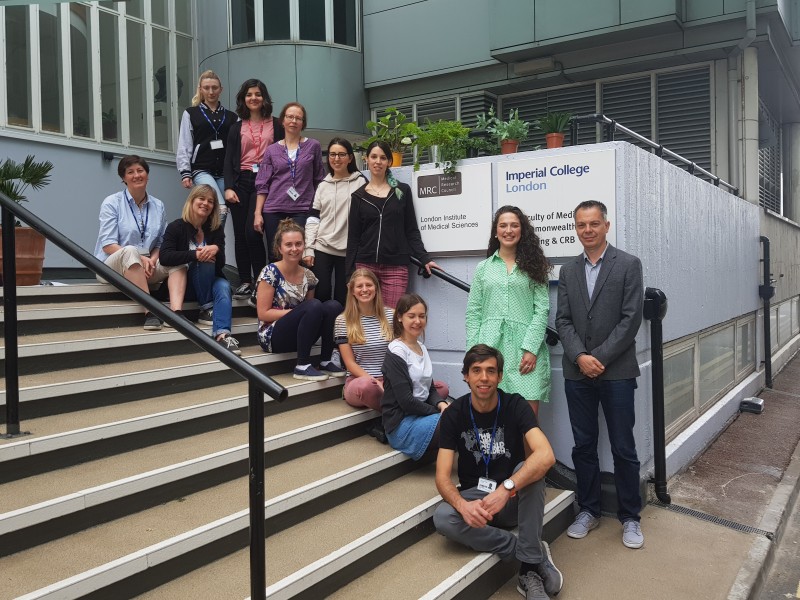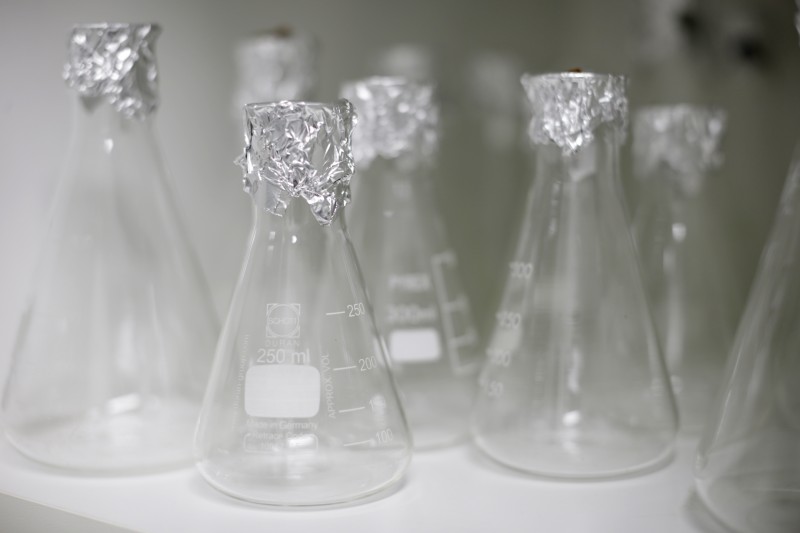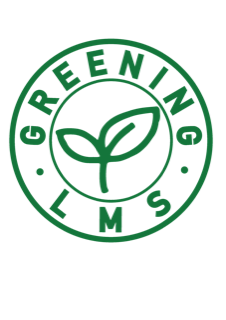For Big Energy Saving Week, we asked PhD student Rebeca Fiadeiro, Founder of our GreeningLMS initiative, to share some advice for making your labs more sustainable.
Doing bioscience research in a sustainable manner is a challenge. Tens of thousands of tonnes of single use plastic used for consumables and packaging, and billions of kWh in energy to run equipment, are used daily. University of Exeter predicted that the 20,500 research institutes worldwide are likely to have generated 5.5 million tonnes of plastic in 2014 – the equivalent weight of 67 cruise liners.
Here at the LMS, we realised that we needed to put more thought into making our research as sustainable as possible.
To address this, GreeningLMS was founded in October 2018 and is now made up of around 10 staff and students striving to improve our Green Impact. Through our changes, and with great support from all members of the Institute, we have made huge progress and were awarded Silver status in LEAF (Laboratory Efficiency Assessment Framework) 2019 – a fantastic initiative born at UCL to try and create a UK standard lab sustainability framework.

Here are the main initiatives we took that allowed us to significantly improve the sustainability at the LMS:
1. Clarify waste segregation
Most researchers revert to putting all waste into clinical waste bins and we were surprised to find the reason was due to a lack of knowledge of what could be put in the mainstream waste, and not just unwillingness to segregate rubbish. We set out to find what the rules were; which was easier said than done. To complicate matters further, each UK council has different rules for recycling and universities usually have their own waste disposal company. It’s important to get in touch with your provider, to clarify what types of plastic are recyclable but also come to an agreement about disposal of “lab looking” waste (such as media and chemical bottles) as there can be concerns about safety of items. As a result, we found it helpful to simplify our waste disposal poster indicating the different available bins and what type of rubbish goes in which. The poster included what types of plastic are recyclable with examples of commonly used items such as pipette wrappers, cell culture falcons, tips, ethanol bottles etc. To avoid safety concerns, we rinse and remove labels from bottles and so are able to recycle media bottles, non-toxic chemical bottles and ethanol bottles. We are now discussing the possibility of following a remarkable initiative started by the Genever lab at the University of York to decontaminate waste so that it can be recycled.
2. Incentivise the use of reusable plastic and glassware
Most Institutes will offer plastic and glassware which is washed and, for certain items, autoclaved. To incentivise researchers to take advantage of this as much as possible, we made sure each floor had a cabinet that was frequently restocked and all researchers were made aware of its location. It might help to remind researchers that, on top of reducing waste, using these items is free of charge. Going forward we would like to buy more items such as glass pipettes and glass 50mL tubes with a lid to replace falcons.

3. Make the most of “take back” schemes
There are a number of companies that collect back packaging or lab items free of charge. For empty tip boxes, we have a contract with STARLAB who collect their boxes and we are hoping to change the contract to Anachem as they claim to collect tip boxes from all brands.
At the moment, NewEngland Biolabs, Promega, Insight Biotechnology and Bioline Meridian BioScience include a Royal Mail Stamp on their Polystyrene boxes so that they can be easily returned. To make people aware of this, we made a simple step by step poster telling people where they can leave their packages to then get collected and returned by Royal Mail. Additionally, 2bscientific started an ice pack recycling scheme that proved so successful that they reached capacity in November 2018 so we are waiting until they can start receiving ours.
4. Participate in LEAF
LEAF is currently being used in 16 research institutions, and hoping to extend to all Institutes across the UK. To be awarded Bronze, Silver or Gold, participants must meet specific criteria that promotes best sustainable practice in areas such as waste & recycling, equipment management, procurement and so on. When GreeningLMS started, participating in LEAF was really helpful to know where to begin by having clear targets, allowing for discussion within the team on how to achieve them. LEAF also gave us credibility when trying to implement changes, to achieve approved goals also being done by many other research institutes. We are now putting in place further changes with the aim of receiving Gold in LEAF 2020. If you are interested in starting LEAF at your Institute or have any questions, email Martin Farley ().
As one of the most wasteful industries, we have a duty not only to eliminate unnecessary waste and energy consumption but to try out innovative ideas to reduce this. Moreover, as of one of the world leading universities, we have a responsibility to set a good example.

